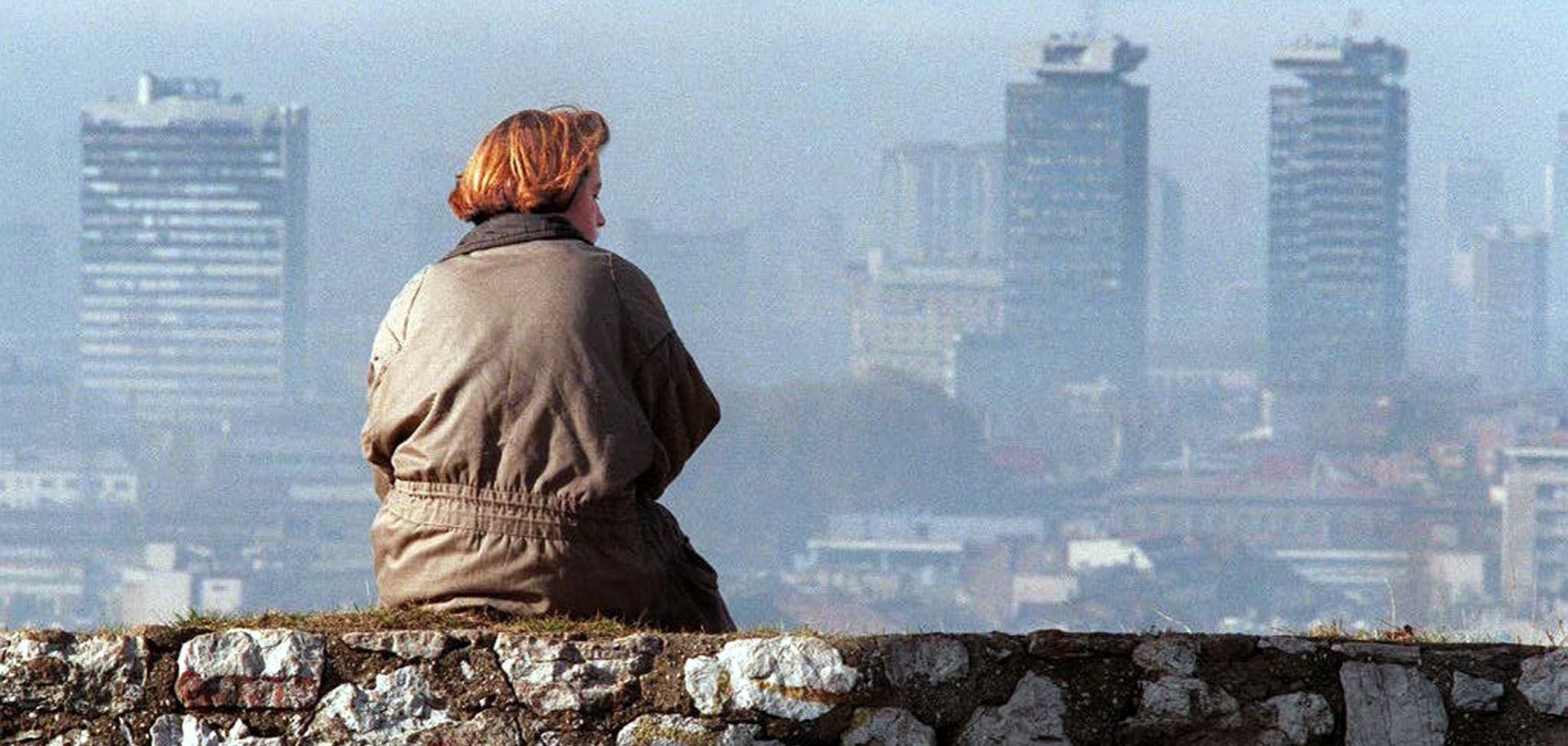
Understanding the Bosnian War, which raged from 1992 to 1995, requires delving into a complex mix of ethnic tensions, political turmoil, and international intervention. This conflict, part of the broader Yugoslav Wars, reshaped the Balkan region, leaving deep scars and unresolved issues. Bosnian War facts reveal the human cost of the conflict, the challenge of peacekeeping in a volatile region, and the struggle for identity and sovereignty in a multicultural society. Through these facts, readers gain insights into the causes, key events, and aftermath of the war, offering a comprehensive overview of one of the late 20th century's most devastating conflicts. This introduction aims to set the stage for a deeper understanding of the Bosnian War's complexities and its lasting impact on Bosnia and Herzegovina and the world.
The Bosnian War, a complex and devastating conflict, took place in the early 1990s. It reshaped the Balkans in ways that are still felt today. Understanding this war requires delving into its causes, key events, and the profound impact it had on the region and its people.
Origins of the Bosnian War
The Bosnian War began in the wake of Yugoslavia's disintegration. As nationalism surged, tensions between Bosnia's ethnic groups escalated. This period was marked by significant political and social upheaval, setting the stage for conflict.
-
Yugoslavia's breakup led to the Bosnian War. With the fall of communism, nationalist sentiments rose among ethnic groups, leading to demands for independence.
-
Bosnia and Herzegovina declared independence on March 3, 1992. This move was opposed by Bosnian Serbs, who sought to remain within a Serb-dominated Yugoslavia.
-
The European Community recognized Bosnia and Herzegovina as an independent state on April 6, 1992, further escalating tensions.
Key Players and Groups
Several factions played crucial roles in the Bosnian War, each with its own objectives and strategies. Understanding these groups helps in comprehending the war's complex dynamics.
-
Bosnian Serbs, under the leadership of Radovan Karadži?, aimed to create a Greater Serbia, incorporating Bosnian territories predominantly inhabited by Serbs.
-
The Bosnian government forces, primarily Bosniaks (Muslims), fought to preserve the country's sovereignty and territorial integrity.
-
Bosnian Croats initially allied with Bosniaks but later clashed with them, seeking to establish their own Croat entity within Bosnia.
Siege of Sarajevo
One of the most harrowing episodes of the Bosnian War was the Siege of Sarajevo. Lasting nearly four years, it was the longest siege in modern warfare history.
-
The Siege of Sarajevo began on April 5, 1992. Bosnian Serb forces surrounded the city, cutting off access to food, medicine, and electricity.
-
Over 10,000 people died during the siege, including over 1,500 children. Snipers and artillery attacks became a daily terror for the city's residents.
-
Sarajevo's defenders dug tunnels under the airport runway to bring in supplies and connect the city with Bosnian-controlled territory.
Srebrenica Massacre
The Srebrenica massacre stands as one of the darkest moments of the Bosnian War, highlighting the brutal nature of the conflict.
-
In July 1995, Bosnian Serb forces overran the UN "safe area" of Srebrenica, where thousands of Bosniaks had sought refuge.
-
More than 8,000 Bosniak men and boys were killed in the days following the takeover, in what was later declared a genocide by international courts.
-
Dutch UN peacekeepers stationed in Srebrenica were unable to prevent the massacre, leading to widespread criticism of the UN's role in the conflict.
Dayton Accords
The Dayton Accords, signed in December 1995, marked the end of the Bosnian War. This peace agreement laid the groundwork for Bosnia and Herzegovina's current political structure.
-
The Dayton Accords were negotiated in Dayton, Ohio, USA, and signed in Paris on December 14, 1995.
-
They established two autonomous entities within Bosnia and Herzegovina: the Federation of Bosnia and Herzegovina (primarily Bosniak and Croat) and Republika Srpska (primarily Serb).
-
The agreement also mandated the presence of a NATO-led peacekeeping force to ensure compliance and security.
Aftermath and Legacy
The Bosnian War left a lasting impact on the region, shaping its political, social, and economic landscape for years to come.
-
An estimated 100,000 people died in the Bosnian War, with millions more displaced.
-
The war led to the establishment of the International Criminal Tribunal for the former Yugoslavia (ICTY) to prosecute war crimes and crimes against humanity.
-
Bosnia and Herzegovina remains divided along ethnic lines, with lingering tensions and challenges in achieving national reconciliation.
-
The war significantly damaged Bosnia's infrastructure and economy, with recovery efforts continuing decades later.
-
Landmines from the war still pose a threat, with thousands of unexploded ordnances scattered across the country.
-
The Bosnian War highlighted the limitations of international intervention in preventing and resolving ethnic conflicts.
-
It also underscored the importance of addressing underlying ethnic tensions and grievances to prevent future conflicts.
-
Efforts to find missing persons and identify victims continue, with families still seeking closure for their lost loved ones.
-
The war's legacy includes a rich body of literature, film, and art that explores its causes, events, and human impact.
-
Despite the challenges, Bosnia and Herzegovina has made significant strides in rebuilding and moving toward European integration.
-
The memory of the Bosnian War serves as a reminder of the devastating consequences of ethnic division and the importance of peace and tolerance.
-
International courts have convicted numerous individuals for their roles in the war, including genocide and other crimes against humanity.
-
The war prompted significant developments in international law, particularly in the prosecution of war crimes and the definition of genocide.
-
Efforts to promote reconciliation and interethnic cooperation in Bosnia and Herzegovina continue, with varying degrees of success.
-
The Bosnian War remains a subject of extensive study and analysis, offering lessons on conflict resolution, peacekeeping, and the complexities of post-conflict reconstruction.
Reflecting on What We Learned
Diving into the Bosnian War has been an eye-opening journey. We've uncovered 30 facts that paint a vivid picture of the conflict's complexity, its profound impact on people, and the region's geopolitical landscape. From the siege of Sarajevo to the Srebrenica massacre, these events remind us of the harsh realities of war and the resilience of those who lived through it. Understanding this chapter of history is crucial, not just for remembering the past, but for shaping a future where such conflicts can be prevented. Let's carry these lessons forward, acknowledging the importance of peace, tolerance, and international cooperation. Here's hoping the stories and facts we've shared spark further curiosity and a deeper understanding of the world's intricate history.
Was this page helpful?
Our commitment to delivering trustworthy and engaging content is at the heart of what we do. Each fact on our site is contributed by real users like you, bringing a wealth of diverse insights and information. To ensure the highest standards of accuracy and reliability, our dedicated editors meticulously review each submission. This process guarantees that the facts we share are not only fascinating but also credible. Trust in our commitment to quality and authenticity as you explore and learn with us.


